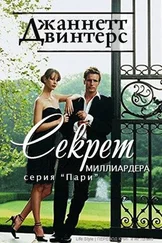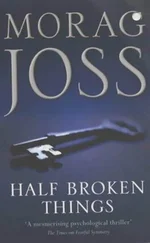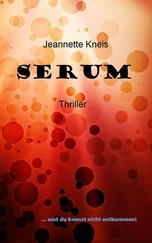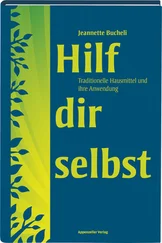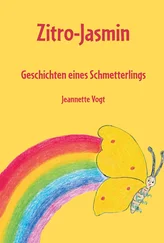“Didn’t you tell me you wanted to live on the ranch when you grew up?” I asked.
Rosemary nodded.
“What in the Sam Hill do you think we do on ranches?”
“Raise cattle.”
“Raise cattle for market, which means sending them off to be slaughtered. If that upsets you-if you’re rooting for the cattle to break free- you’re not cut out for ranch life.”
We got back to the ranch and were in the barn unsaddling the horses and cleaning the tack when Rosemary walked up to Jim and me. “I want to learn to skin a steer,” she said.
“What on earth for?” I asked.
“That’s the nastiest job on the ranch,” Jim said. “Even worse than gelding.”
“Since I’m going to be a rancher, it’s something I need to learn,” Rosemary said.
“Suppose you’re right about that,” Jim said.
At roundup time, when we had a lot of cowboys on hand, we slaughtered a steer at least once a week. A few days later, Jim picked out a healthy-looking three-year-old Hereford. He led it into the meat house, quickly slit its throat, gutted it, sawed the head off, and hooked it, then a couple of the cowboys used the pulley to hoist it up to the cross-pole.
We let the carcass hang for a day, and the following morning we all went back to the meat house for the butchering. Jim used the pedal-driven grinding stone to give the knife a razor-sharp edge, holding it with both hands and moving it back and forth along the spinning stone as sparks shot out.
Rosemary, who was watching silently, looked pale. I knew she thought of cattle as sweet creatures who never harmed anyone, and now she was standing in front of a dead steer her father had killed, steeling herself to cut it apart. When I was growing up, gelding and slaughtering had been part of my life, but since moving to the ranch, we’d had cowboys do the bloody work, and Rosemary had been shielded from it.
But the kid was trying to be brave, and as Jim tied the leather butcher’s apron around her waist, she started humming. Jim passed her the knife and guided her hand to the spot on the steer’s lower leg where she needed to make the first cut. As she drew the knife down, she started crying silently, but she kept at it, Jim directing her movements, keeping his voice low and steady, cautioning her not to nick the flesh.
Rosemary’s hands were soon covered with blood, and she smeared it on her face, trying to wipe away the tears, but she never gave up, and while it took most of the day, they eventually got the hide off and sectioned the meat.
When it was all done, I threw sawdust on the floor while Jim cleaned the tools. Rosemary hung up the leather apron, washed her hands in a bucket, and walked out of the meat house without saying a word. Jim and I looked at each other, but we didn’t say anything, either. We both knew that she’d proved she could do it, but she’d also proved that she didn’t truly have the heart for it, and none of us ever mentioned it again.
I thought Rosemary might have even lost her appetite for meat, but the girl had a real gift for pushing unpleasantness out of her mind, and that night she tucked into her steak with gusto.
THE FOLLOWING SUMMER Ireceived a letter from Clarice Pearl, a senior muckety-muck with the Arizona Department of Education. She wanted to investigate the living conditions of the children of the Havasupai, who lived in a remote stretch of the Grand Canyon. She was bringing a nurse from Indian Affairs to determine if the children met hygiene standards. She asked me to drive the two of them to the canyon and arrange horses and a guide to get us down the long trail to the Havasupai village.
Fidel Hanna, the young Havasupai ranch hand whom Rosemary had a crush on, lived on the reservation when he wasn’t staying at the bunkhouse, and I asked him to set things up. He laughed and shook his head when I told him why the superintendent and nurse were making the trip.
“Coming to inspect the savages,” he said. “My father used to tell the story about how, for centuries, the Havasu men got up in the morning, spent the day hunting and fishing, came home, played with their children, and lay down with their woman at night. They thought life was pretty good, but then the white man came along and said, ’I have a better idea.’”
“I get his point,” I said. “But my father used to sit around pining for the past, too, and I’ve seen how that kind of thinking just eats away at you.”
I drove the hearse into Williams, bringing Rosemary with me, to pick up Miss Pearl and the nurse, Marion Finch, at the depot. Both of them were stout and pucker-mouthed, with short bobby-pinned hair. I recognized the type-disapproving do-gooders. They always had very high standards, and they always let you know that you didn’t quite measure up to them.
As we headed north, I tried to entertain my customers with a little Indian lore. “Pai” meant “people,” I explained. “Havasupai” meant “people of the blue-green water.” There were also the Yavapai, the Sun People, and the Walapai, the Tall Pine People. The Havasupai, who lived in a narrow valley on the banks of the Colorado River, regarded the water as sacred and threw their babies into it when they were a year and a half old.
“Before they’ve learned fear,” I said.
“That’s just the kind of practice we’re concerned about,” Miss Finch said.
I glanced over at Rosemary and rolled my eyes. She stifled a smile.
After about two hours, we reached Hilltop, a desolate spot out in the sagebrush at the canyon’s rim, where the horse trail led down to the village. There was no sign of Fidel Hanna. We all got out of the hearse and stood there listening to the wind, my two customers clearly disgusted with the unreliability of the heathens they’d come to help. All of a sudden a band of young Indians on horseback, half naked and with painted faces, galloped up the trail and circled us, whooping and brandishing spears. Miss Pearl turned white, and Miss Finch gave a shriek and covered her head with her arms.
But by then I’d recognized that the ringleader, under his war paint, was Fidel Hanna.
“Fidel Hanna, what the blazes do you think you’re doing?” I hollered.
Fidel pulled up in front of us. “Don’t worry.” He grinned. “We no scalp’em white ladies. Hair too short!”
He and the other Havasu boys all started laughing, so beside themselves with glee at their success in terrorizing the do-gooders that they almost fell off their horses. Rosemary and I couldn’t help chuckling, too, but my customers were outraged.
“You all belong in the reformatory,” Miss Pearl declared.
“No harm done,” I said. “They’re just kids playing cowboys and Indians.”
Fidel pointed at three of his friends, who jumped off their horses and doubled up with others. “Those are your mounts,” he said to us. Then he held out his hand to Rosemary. “You can ride with me,” he said. He pulled her up behind him, and before I could say anything, they were galloping down the trail.
* * *
Miss Pearl, Miss Finch, and I followed at a walk on our horses. The trail to the village was eight miles long, and it took most of the day to travel it. The path wound down the side of the canyon through a series of steep switchbacks, passing walls of limestone and sandstone layered like giant stacks of old papers. Several years earlier, some missionaries had tried to haul an upright piano down to the village so the Havasupai could sing hymns, but it had fallen off the cliff. We passed its smashed remains- black and white keys, twisted rusting wire, and splintered wood-lying among the rocks.
After a few hours, we came to a spot where clear, cold water gushed from an artesian spring, and that was where the stony landscape of the upper canyon gave way to lush greenery. Cottonwood, watercress, and willows lined the trail. The air was cool and moist and still.
Читать дальше

